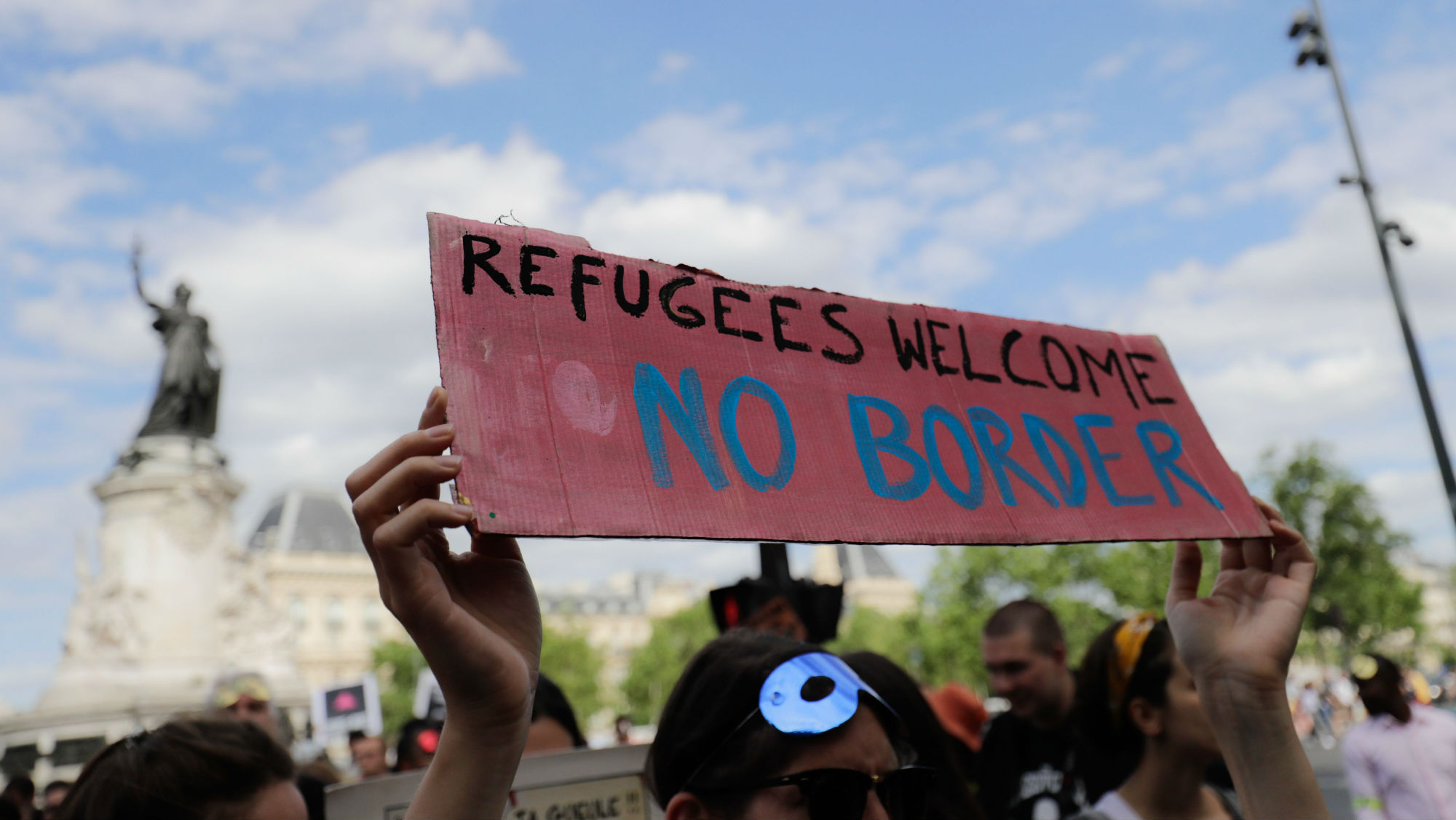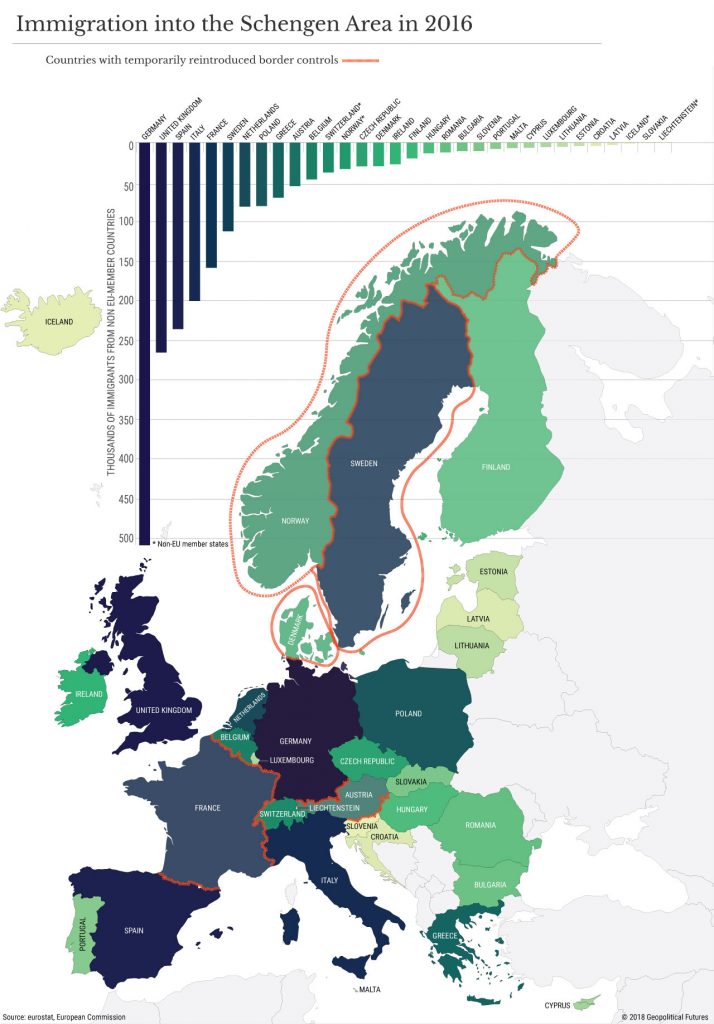Geopolitics is the study of how human societies interact with one another and with the environments that surround them. Large demographic shifts that bring societies into contact in new and often unexpected ways are, fundamentally, geopolitically significant.
It’s little wonder, then, that immigration has become such a polarizing issue in Europe. Germany’s government is increasingly divided, as evidenced by the rise of the Alternative for Germany party, which advocates stricter border controls. A coalition of anti-immigration and generally euroskeptic parties has just been elected in Italy. Poland and Hungary have both pushed back against EU directives related to continental immigration policy.
The nature of the European Union makes immigration an even more important issue. One of the bloc’s philosophical tenets is the free movement of people, but Brussels is having a hard time enforcing its own rules on disobedient countries. As the demographics of EU members change, so too may the European Union itself.






